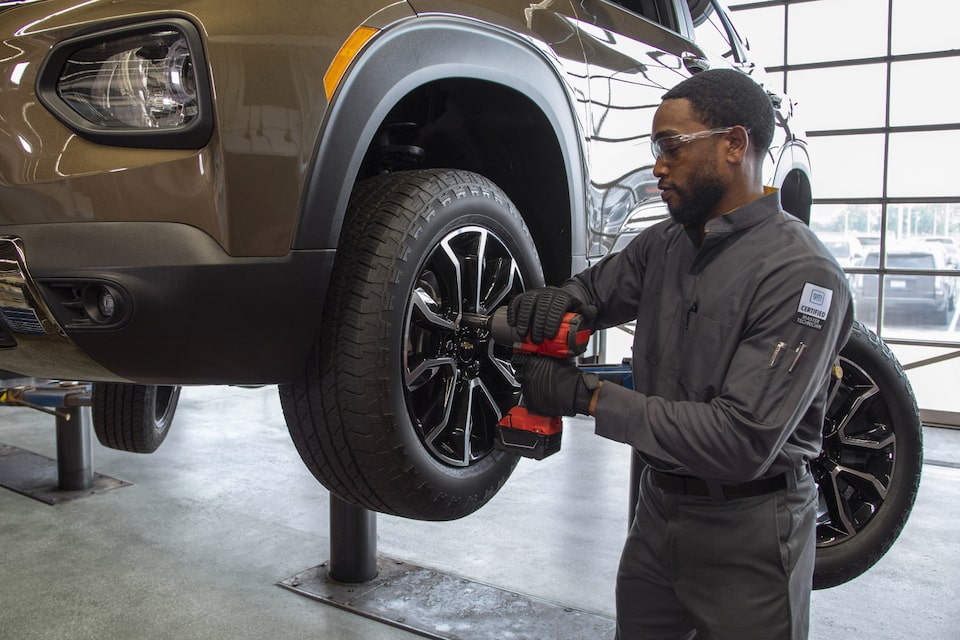Extraordinary Discount Tires Morris IL: Shop Currently for Irresistible Financial Savings
Extraordinary Discount Tires Morris IL: Shop Currently for Irresistible Financial Savings
Blog Article
Tire Solution: The Influence of Climate Problems
When it pertains to guaranteeing optimal efficiency and security on the roadway, understanding the impact of weather on tire service is crucial. From scorching warmth to icy roadways, each weather aspect can significantly influence tire performance and overall driving experience. By diving right into the effects of differing climate condition on tires, vehicle drivers can gain important understandings that might boost their car's performance and longevity. In this conversation, we will certainly check out the elaborate connection between weather conditions and tire service, shedding light on the importance of weather-specific tire upkeep practices and considerations.
Heat and Tire Efficiency
When exposed to heats, tires experience adjustments in efficiency that can substantially impact lorry security and handling. The warm created from prolonged driving or heat conditions causes the tire rubber to soften, bring about lowered step life and boosted wear. As the rubber comes to be softer, the tire's hold on the roadway lessens, influencing braking ranges and general traction. In severe situations, too much warmth can also create tire blowouts, posturing a severe safety and security risk to the lorry and its occupants.
Additionally, high temperature levels can accelerate the process of tire aging, creating the rubber to degrade faster. This can cause cracks, bulges, and other forms of damages that compromise the architectural honesty of the tire. To alleviate the impacts of warmth on tire performance, chauffeurs ought to consistently examine their tire stress, turn tires to make certain even use, and examine for any type of signs of damage. In addition, using tires especially developed to withstand heats can aid maintain ideal efficiency and safety when traveling.
Cold Weather Condition Results
Cold weather condition problems can have a considerable influence on tire performance and safety and security. As temperature levels decrease, tire rubber can set, bring about lowered grip on icy or snow-covered roadways. In cold weather, tires might also lose air pressure more swiftly, which can impact taking care of and fuel performance. Furthermore, cool temperature levels can cause tire sidewalls to tense, boosting the danger of damages from pits or other roadway hazards.
To reduce the results of cool weather condition on tires, it is crucial to regularly check tire stress and inflate them to the maker's recommended degrees. Making use of winter season or all-season tires created for cold weather condition conditions can additionally boost grip and grip on icy or snowy roadways - discount tires morris il. Correct tire upkeep, including normal evaluations for wear and damage, comes to be also much more critical during colder months to make certain optimal efficiency and safety and security
Rainy Issues Effect
Throughout rainy problems, tire efficiency and safety can be substantially influenced by the damp roadway surfaces and minimized visibility. The step pattern of tires plays an essential function in maintaining traction on damp roads. Tires with damaged footsteps are much more susceptible to hydroplaning, where a layer of water develops between the tire and the roadway surface, causing loss of grip. To fight this, motorists need to routinely evaluate sites their tires for adequate step depth and take into consideration purchasing tires especially created for damp conditions.

Snow and Tire Safety
Snow-covered roads posture one-of-a-kind difficulties for chauffeurs, stressing the significance of correct tire choice and upkeep. When driving in snowy problems, having the appropriate tires can make a considerable difference in safety and performance. Winter season tires are made with unique rubber compounds and tread patterns to offer far better grip on snow and ice contrasted to all-season tires. The deeper treads and sipes of winter season tires help grasp the road much better, minimizing the danger of slipping and moving.
Along with utilizing winter season tires, it is essential to guarantee they are correctly blown up. Winter can create tire stress to drop, impacting grip and handling (morris tire and alignment). Regularly inspecting and preserving the proper tire pressure is vital for optimum performance in snowy problems

Weather-Related Tire Maintenance
When encountered with various climate condition, appropriate tire maintenance becomes a critical aspect of lorry safety and efficiency. Weather-related tire maintenance encompasses a variety of techniques intended at making sure optimal tire feature and long life in various climate situations. One essential aspect of weather-related tire upkeep is tire pressure guideline. Varying temperatures can create tire pressure to differ, affecting grip and fuel performance. Regularly readjusting and checking tire stress according to producer recommendations is websites crucial for risk-free driving in transforming weather conditions. In addition, tire walk depth plays a significant role in taking care of various climate aspects. Tires with adequate step deepness provide much better grip on damp or icy roads, lowering the risk of hydroplaning or skidding. Checking tire walk on a regular basis and replacing tires when walk wear gets to a certain deepness is vital for maintaining grip and security in adverse weather condition. By focusing on weather-related tire upkeep, drivers can improve safety and security, enhance vehicle performance, and extend the life expectancy of their tires.
Verdict
In verdict, weather conditions have a considerable impact on tire performance and safety and security (discount tires morris il). From warm impacting tire pressure and use to chilly weather reducing traction, it is important to think about the weather condition when maintaining and utilizing tires.
In this discussion, we will explore the complex relationship in between weather problems and tire service, losing light on the value of weather-specific tire maintenance methods and considerations.

Report this page